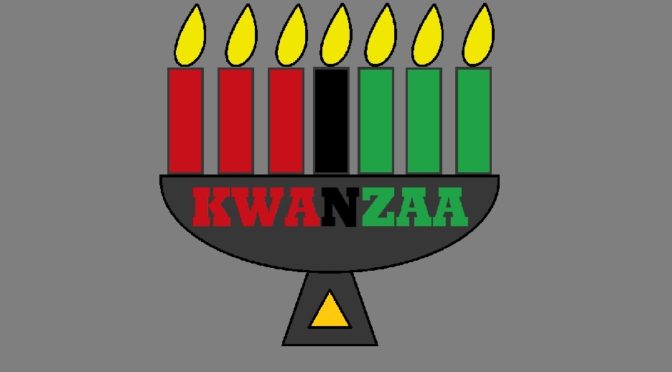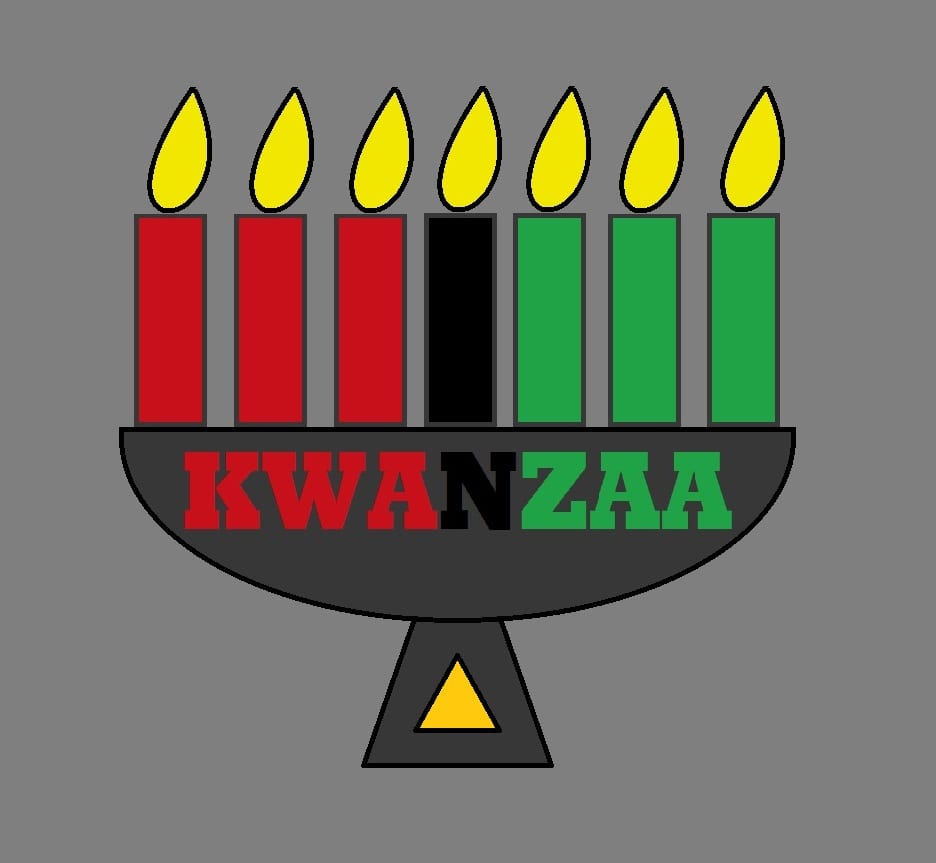If you ask most people about Kwanzaa, they will probably say that they have heard and seen the term at some point, and they may even say that it is celebrated mostly in the Black community. But after that, the details get spotty at best.
It’s easy to associate this tradition with Christmas because it begins on December 26th of each year, and ends on January 1st. But Kwanzaa is a Communitarian holiday not based in religion, but is rather a celebration of the culture, struggle and hope of African people. Let’s learn more about this special holiday from its founder, Dr. Maulana Karenga writing for Ebony Magazine on the 50th Anniversary..
We remember our history and the legacies left and the people who made and left them for us and the world. We reflect on the expansive meaning of being African in the world, on the context and issues of our times, and on our way forward in struggle to forge a future responsive to our needs and interests as well as those of the world. And we recommit ourselves to our highest values, to our most anchoring, elevating and liberating practices, and as ever to the good of our people and the well-being of the world.
At this historical milestone and marker, it is good to remember and reflect on the origins of Kwanzaa, not only in the ancient African festivals of harvest and shared good, but also its origins in the relentless and righteous struggles of the 60s (i.e., the Black Freedom Movement for freedom, justice, equality, and power of our people over their destiny and daily lives).
For deeply embedded and ever-present in the celebration of Kwanzaa and the practice of its founding principles, the Nguzo Saba, is the constant call for and commitment to striving and struggling. Here, I use striving and struggling interchangeably, with the meaning being exerting great and focused effort to achieve, excel and advance. For the struggle, as we imagined and waged it and continue to do so, is not only to defy and defeat the oppressor, but also to overturn ourselves, removing from ourselves the legacy of oppression, clearing social space in which we can live, love, work, build and relate freely, and striving diligently then to come into the fullness of ourselves.
Kwanzaa, then, was conceived, born and came into being in the midst of struggle, in the fires and furnaces of the Black Freedom Movement, and therefore carries within it this legacy and the lessons from it.
Though it honors contributions which originated on the African continent and takes it’s terminology from the African language of Swahili, the first Kwanzaa was actually celebrated in the United States. Now after 51 years, people all over the world observe this rich holiday tradition.
Here are some facts about Kwanzaa…
Each of the Seven Principles of Kwanzaa, or Nguzo Saba are celebrated on their own special day, and each occupy a candle on the Kwanzaa candle holder, or Kinara…
Umoja for Unity
Kujichagulia for Self-Determination
Ujima for Collective Work and Responsibility
Ujamaa for Cooperative Economics
Nia for Purpose
Kuumba for Creativity
Imani for Faith
The colors of Kwanzaa represent unity and commonality for peoples of African descent… Black for the people, Red for the struggle, and Green for their progress, and the hope for prosperity and achievement.
With the rise of movements like Black Lives Matter and such current and complex political struggles, it’s no surprise that recent years have seen renewed interest in the holiday festival.
Another great Kwanzaa resources is a 2008 film, The Black Candle. The film, directed by M. K. Asante and narrated by Maya Angelou, is an in-depth examination of the holiday’s history, connections to the Black Power movement and other socio-political factors which surround its founding.
As we close out this year and wind down on a very busy season, Kwanzaa offers an opportunity to not only celebrate the year’s triumphs and the many incredible contributions of the Black community, but to help set important goals to achieve in the coming year. With the complex challenges that are present today, we need holidays like this one perhaps more than ever.
Do you celebrate Kwanzaa, or have you celebrated in the past? What are your thoughts on this holiday? Let me know in the comments.
Heri za Kwanzaa / Happy Kwanzaa everyone!
(if you like this Texas Leftist post, please consider a donation!)

